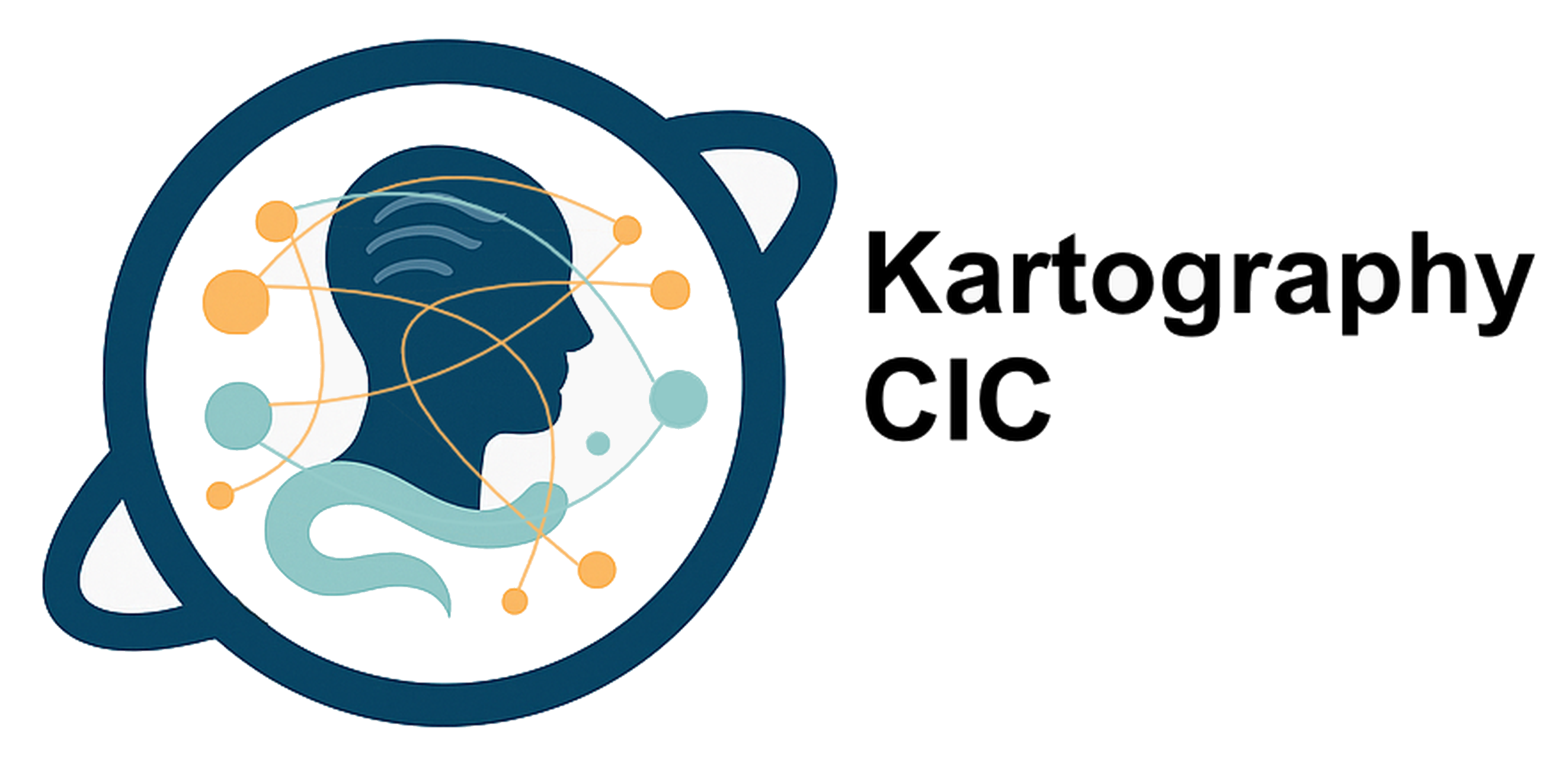Humanities
Our systems delve into history and society to inform how we see the present and imagine the future. Through historical research, creative media, and participatory projects, we bring human and social reality to the forefront.
Science & Data
We use semantic data, cognitive mapping, and processual thinking to analyze complex challenges. Synthesising different space-times, levels of generality and vantage points, we apply scientific digital tools to support informed interpretation and decision-making.
Community Engagement
Our projects are rooted in the communities we serve. We prioritize co-design, accessibility, and equity in all our work, ensuring that everyone has a voice in shaping the knowledge we build together.
About Kartography
Kartography is a consultancy specialising in the design and implementation of semantic knowledge bases.
We help organisations transform how they structure, connect, and use information—aligning technology with real-world knowledge processes.
Whether building from scratch or evolving existing systems, we create dynamic, adaptable platforms that support research,
decision-making, education, and collaboration. Our open-source ResearchSpace system breaks from rigid data models,
enabling meaningful, flexible knowledge base systems.
Our team brings deep interdisciplinary experience—from ethnography to conservation science—shaped by work with institutions like the
British Museum, National Gallery, and Royal Academy of Arts. We understand how humanities and social science research operates,
and we use that insight to craft digital tools that reflect how people actually think and work.
We offer:
- Custom knowledge base design and implementation
- Process analysis and workflow modelling
- Semantic interface development
- Training in linked data and knowledge representation
- Ongoing support and project partnership
Kartography is the original development team behind ResearchSpace, a semantic platform shaped by over a decade of
critical research into digital methods in the humanities. Our goal is simple: empower users to build knowledge, not just manage data.
📧 Contact us: info@kartography.org
ResearchSpace Semantic Web Platform: A Living Knowledge Process
ResearchSpace is not just a digital platform — it is a dynamic process of sense-making, designed to evolve alongside the inquiries and communities it serves. Rooted in material processual principles, and supported by CIDOC CRM, ResearchSpace facilitates the transformation of historical evidence into contextualised knowledge in a native Linked Data format.
From a processual perspective, ResearchSpace operates through the following core phases:
- Expert Authoring: Primary materials—oral histories, images, texts, and data—are carefully introduced into the system, not as static records, but as evolving patterns of human experience.
- Annotation and Interpretation: Experts and collaborators contribute interpretations, link entities, and express uncertainty and develop arguments. Meaning is layered allowing for contradiction to coexist with a wish for dialectic resolution.
- Semantic Connections: Relationships between people, events, places, and concepts are made explicit using a shared ontology (CIDOC CRM). These links do not freeze knowledge but express how and why elements relate across time and context.
- Reconfiguration: As projects develop or new perspectives emerge, previous interpretations can be revisited. ResearchSpace supports this recursive process—knowledge is always provisional, always subject to refinement.
- Engagement and Circulation: Outputs are not endpoints. Whether in exhibitions, publications, or participatory storytelling, the knowledge modeled in ResearchSpace is re-expressed to new audiences, inviting feedback, re-use, and dialogue.
Link to researchspace.org
